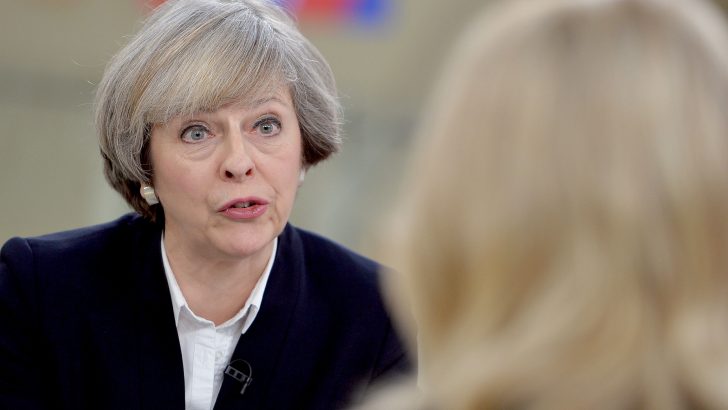One hundred years ago, many opinion-leaders, including a number of Catholic and (mainly southern) Church of Ireland bishops, who, unusually for that time, issued a joint statement on the subject, regarded partition as unthinkable.
Yet it happened, and took a hard form for the rest of the 20th Century. Then the peace process combined with the European Single Market removed the border in virtually all its physical manifestations. While there is near-unanimity that Brexit must not involve the return of a hard border, history as well as the unresolved contradictions in that prospectus teaches us not to be so sure. At least, there is now some reassurance that the Common Travel Area is safe, and that cross-border workers will be unimpeded.
At the Kilkenny Arts Festival in early August, mainly dedicated to the music of Schubert and Handel, there was a discussion in the Parade Tower of Kilkenny Castle with former British Ambassador to the EU in the late 1990s Sir Stephen Wall, on the background to Brexit. Like most retired senior British diplomats, he did not think it a good idea. One interesting point related to the 1975 referendum on Britain’s continuing membership of the EEC, two years after it had joined with Ireland and Denmark. Mrs Thatcher, newly-elected Tory party leader in opposition, was strongly in favour of remaining. According to Wall, she advocated that, should the vote be lost another one should be held, after the withdrawal terms were known, to make sure that was what people still wanted.
This episode in her career, when she was strongly pro-European, is quickly glossed over in her monumental biography by Charles Moore, former editor of the Daily Telegraph and leading Eurosceptic. Actually, the points she made then are remarkably relevant to key issues arising today.
On June 9, 1975, in parliament, Mrs Thatcher rejoiced over the excellent referendum result, which was a decision to remain by two to one. She was particularly pleased “with the strong ‘yes’ from each of the four parts of the United Kingdom, which confirmed the strength of the British ties which unites us”. While Mrs May used the same rhetoric after the Brexit vote, it could not disguise the fact that Scotland and Northern Ireland had voted to go one way, and England and Wales another, the English majority deciding it for the rest. Mrs Thatcher finished by paying tribute to the vision of Sir Winston Churchill and the courage of Harold Macmillan, who made the first application to join the EEC in 1962.
Speeches
It is often claimed that Britain’s problem is that it joined an economic community that then turned political. The first reason that Mrs Thatcher put forward in her referendum speeches for remaining in the Common Market was peace and security, saying it should not be taken too much for granted. Given recent terrorist attacks and other international tensions, that argument is surely as valid today.
Her second argument, from her speech in parliament on April 8, 1975, was the importance of secure access to food supplies, Britain being a “most vulnerable country” needing at that time to import half its food. The EEC would be self-sufficient in many agricultural products, and “because of its combined bargaining power…in a far better position than any single country to negotiate with the rest of the world”.
Her third and related reason was the advantage of belonging to the largest trading bloc in the world (at that time), noting that other countries were far more interested in access to the EEC market than negotiating with individual countries. Mrs May has been finding that out for herself in Japan. Half Britain’s trade was with the EEC (today, over 40%), and “through our membership of the Common Market we have preferential access to all those countries, which we would not otherwise have”. She made the point that independent Commonwealth countries had their own trading preferences and arrangements.
“Another good reason for staying in is the effect there would be on investment and jobs if we were to pull out…Obviously, quite a number of multinational companies will prefer to invest in Europe rather than here if we are not a member of the Common Market”. This effect is being seen.
Her final argument also has resonance. “If we were now to withdraw, it would be a leap in the dark. We should not have any idea of the trading conditions into which we were coming out, or of the effect on sterling” (to date, a drop in value of 15% plus). She concluded by saying Britain had always played a major role in the world. She did not believe that it could play that role to best advantage on its own.
Of course, her views changed, and she became more and more antagonistic to the European Community, as it became more ambitious. Nevertheless, the cogent arguments she made in 1975 retain their validity, and have been overlooked by her followers.
Blueprint
Another British Conservative former Minister, Catholic and of Irish extraction, Chris Patten, has written an interesting memoir called First Confession, which has significant religious content. He is remembered here for the outstanding job of the Patten Commission in providing the blueprint for a non-partisan Northern Ireland police service.
Patten makes some caustic comments about British media attitudes that led to Brexit. When he accepted the job of EU Commissioner, the Daily Telegraph claimed that he had turned his back on the British way of life. Paul Dacre, editor of the Daily Mail, told then EU Commission President Romano Prodi bluntly that their two stringers in Brussels “were there to ferret out every bad story they could find about Brussels and the EU”, and he was not interested in anything else.
Brexit will disrupt relations within these islands, while removing the common EU platform that helped underpin the peace process. For Mrs Thatcher in 1975, Britain was “inextricably linked to Europe”. Brexit is a reckless attempt to demonstrate the opposite.


 Dr Martin Mansergh
Dr Martin Mansergh British Prime Minister Theresa May
British Prime Minister Theresa May 